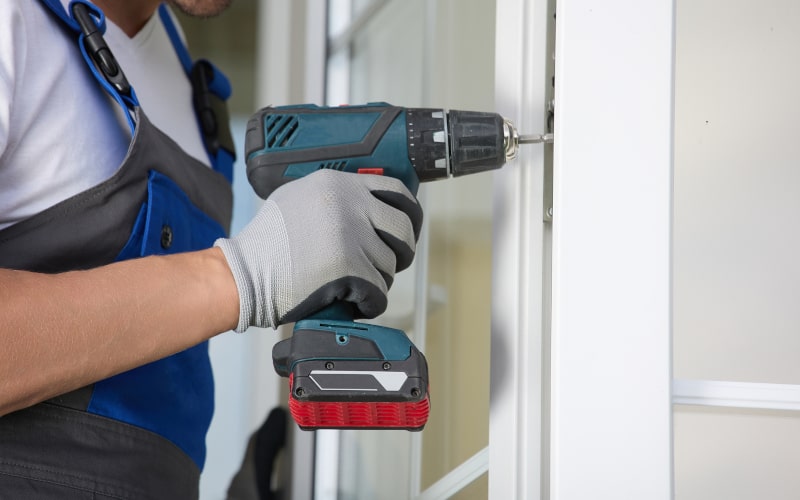Established Window Companies vs Independent Contractors: Choosing the Right Fit

Key Takeaways
- Window companies typically offer greater accountability, warranties, and consistent quality.
- Independent contractors may offer more personalized service and flexible pricing, but often with fewer safeguards in place.
- Deciding whether to hire a contractor or a company depends on how big your project is, how much risk you’re comfortable with, and what kind of long-term support you expect. Working closely with a contractor can be beneficial, but it may also lead to differences in the final result.
- Homeowners often trust established companies for their professionalism, streamlined service, and better legal compliance.
What are the key differences between window companies and independent contractors?
Imagine you're replacing all the windows in your home. Do you go with a big, established name or a solo contractor recommended by a friend? The answer isn't always clear-cut, but understanding the distinctions between the two is worthwhile.
Defining the players: company vs. contractor
A window company typically refers to a business with multiple employees, a physical office, formalized processes, and a brand reputation. These companies often manufacture, sell, and install windows as a comprehensive service.
In contrast, an independent contractor is usually a self-employed individual or small team that provides installation services, sometimes subcontracted by manufacturers or larger retailers. They may not have a storefront or dedicated customer support, but can offer more flexible, informal arrangements.
Licensing, size, and oversight
- Licensing and Insurance: Companies often maintain up-to-date licenses and comprehensive liability insurance. Contractors may vary widely — some are fully licensed, while others may not hold all the necessary certifications.
- Workforce Size: A company may have dozens or hundreds of employees, allowing for faster scheduling and team-based execution. Contractors work solo or with small crews, which can affect timelines and cause significant delays.
- Oversight and Accountability: Larger companies have internal quality control systems, customer support teams, and formal contracts. Independent contractors rely on their reputation and personal integrity, with fewer structural checks in place.
Scope of services and long-term support
- Full-Service vs. Installation-Only: Companies often handle product selection, permits, disposal, installation, and aftercare. Contractors may only offer installation.
- Warranties and Guarantees: Companies tend to provide long-term warranties on both product and labour. Contractors may offer limited or no warranties, primarily if they are not affiliated with the manufacturer.
Side-by-side comparison
| Feature | Window Company | Independent Contractor |
|---|---|---|
| Team Size | Medium to large | Small or solo |
| Service Scope | End-to-end service | Typically installation only |
| Warranties | Standard, often 10+ years | Limited or, in rare case, none |
| Customer Support | Dedicated team | Direct contact with the contractor |
| Accountability | Structured systems | Personal responsibility |
How does hiring a home improvement contractor impact project quality?
Some homeowners prefer working directly with independent contractors, appreciating the personalized service and flexibility that this approach offers. However, this approach can come with inevitable trade-offs — particularly in areas like workmanship quality, regulatory compliance, and liability management.
Pros and cons of hiring independent contractors
Pros:
- More flexible pricing and negotiation
- Direct communication with the installer
- Potentially faster decision-making
Cons:
- Inconsistent workmanship across projects
- Limited or unclear warranty terms
Inconsistency and quality risks
Unlike companies with established training programs and protocols, independent contractors often rely solely on their experience. That’s not always a bad thing, but it can lead to inconsistent results. One contractor might exceed expectations, while another might leave gaps in insulation or overlook sealing around the frame.
Legal compliance and permit handling
Companies often manage local permits and ensure code compliance. Contractors may expect homeowners to take responsibility, leaving them legally vulnerable.

Why do some homeowners prefer established home improvement companies?
It’s not just about the windows — it’s about peace of mind. A known brand signals professionalism, accountability, and future support. In fact, the Better Business Bureau reports that companies with 10 or more years in business have a 40% lower complaint rate in the home services sector.
Trust and brand confidence
Homeowners often choose companies because of their visible track records. An established presence, verified reviews, and branded warranties all reduce perceived risk.
Warranties and aftercare
A 2022 survey from WindowIndustryReport.com found that 78% of homeowners prioritized long-term warranties when choosing a window replacement provider. Companies typically register your project, offer online support, and manage warranty claims internally — something a contractor rarely does.
Consistency in customer service
Companies usually provide:
- Structured consultation processes
- Online quotes and booking systems
- Dedicated customer support before, during, and after the job
Independent contractors might be great at what they do, but answering your call six months later for a slight adjustment? That’s not guaranteed.
Real examples from Canadian Choice
Canadian Choice Windows & Doors™ illustrates this difference with its lifetime transferable warranty, online service request portal, and professional training for all installers. This blend of technology and human support is why many choose them for significant upgrades.
Are independent contractors more affordable than window companies?
At first glance, independent contractors often provide more affordable quotes than large window companies; however, initial cost savings can sometimes lead to long-term issues, additional repairs, or limited warranty coverage.
Short-term pricing vs. long-term value
Contractors may charge less because they have fewer overhead costs: no customer service staff, minimal advertising, and no office lease. This can translate into competitive pricing, especially for small jobs.
But here’s the catch:
- Rework costs if the job isn’t done right the first time
- Limited warranties requiring out-of-pocket fixes
- Time lost coordinating corrections or dispute resolution
Window companies may cost more initially, but they include project management, structured processes, quality control, and robust warranties.
Possible, depending on scope and clarity of estimate
Contractors may provide a vague estimate that excludes costs such as disposal, material upgrades, permit fees, or cleanup. Companies often provide detailed quotes and itemized billing.
| Cost Element | Window Company | Independent Contractor |
|---|---|---|
| Upfront Quote | Higher | Lower |
| Hidden Fees | Rare, itemized | Common, vague estimates |
| Warranty Costs | Included | Often extra or not available |
| Repair Risks | Minimal | Higher if poorly done |
| Time Investment | Less (the company manages) | More (homeowner manages) |
What risks should you be aware of when hiring independent contractors?
While the upfront cost may appear favourable, there can be hidden catches — such as licensing gaps, a lack of insurance, or scheduling delays — that complicate what seems like a straightforward job.
Licensing and legal standing
Some independent contractors operate without proper licensing. This makes legal recourse nearly impossible if something goes wrong.
Liability and insurance exposure
If a contractor isn’t insured, you could be held liable for injuries or property damage during the job. Reputable companies carry full liability and workers’ compensation coverage.
Project delays and scams
A common complaint on forums like Houzz and Reddit’s r/HomeImprovement is that contractors who delay completion, request unexpected additional payments, or have less experience than initially presented.
How do warranty and aftercare differ between companies and contractors?
Warranties are more than just paperwork — they’re insurance for your peace of mind. And when it comes to aftercare, the contrast is even sharper.
Warranty length and terms
Most window companies offer multi-decade warranties, often transferable to new homeowners. Contractors may offer shorter or less formal warranty terms.
| Warranty Factor | Window Company | Independent Contractor |
|---|---|---|
| Length | 10–25 years, often lifetime | 1–5 years (if any) |
| Transferability | Usually transferable | Rarely transferable |
| Product & Labor | Both covered | Often labour only |
| Registration | Registered and tracked | Often verbal only |
After-installation service and availability
Companies have dedicated service teams and online portals to support their customers. You can file a claim or schedule adjustments without needing to contact someone directly.
Contractors may be difficult to reach after installation, especially if disputes arise.

Can an independent contractor handle complex renovations like complete window replacement?
While some contractors may be up to the task, it’s essential to note that not all are equipped to handle the full scope of a window replacement project. It’s more than just removing old panes and installing new frames — it’s a complex renovation that demands careful planning, the right tools, and full compliance with building codes.
Step-by-step scope of a complete window replacement
- Initial Assessment: Measure openings, identify water damage, structural integrity, and load-bearing constraints.
- Permit Applications: Required in most provinces for alterations to the window size or structure.
- Removal: Careful deconstruction of existing window frames without damaging surrounding materials.
- Installation: Sealing, insulation, flashing, frame anchoring, and correct alignment.
- Final Inspection: Ensuring everything meets local building codes and energy efficiency standards.
What independent contractors may lack
- Specialized tools for non-standard sizes or custom installations
- Project management for coordinating multiple windows and timelines
- Access to training or updates on new code changes or energy compliance
What legal protections exist when hiring a contractor vs a company?
Hiring anyone to work on your home is a legal transaction, whether formalized or not. Understanding your protections — before you sign — is crucial.
Contracts and written agreements
Companies typically provide detailed contracts that outline scope, pricing, warranty terms, and dispute resolution methods.
Independent contractors might rely on informal agreements. Without a contract, pursuing damages or warranty claims becomes significantly harder.
Insurance and liability
As a rule of thumb:
- Ask for proof of insurance from any contractor.
- Require a written estimate that includes timelines and scope.
- Avoid cash-only deals that do not come with receipts.
Government regulations and recourse
Consumer protection varies by province. For example:
- In Ontario, the Consumer Protection Act requires home renovation contracts over $50 to include specific cancellation rights.
- In Alberta, the Fair Trading Act governs door-to-door sales and renovations.
Check your rights via provincial consumer affairs websites:
What should you look for in a trusted home improvement company?
When it comes to entrusting your home to a renovation company, credentials aren’t just paperwork — they’re the blueprint of accountability. Here’s what sets a reliable firm apart from a risky one.
Certification and formal credentials
Look for companies with:
- Manufacturer certifications for installing specific products
- Affiliations with national organizations like the Canadian Home Builders’ Association
- Workplace safety accreditations like COR certification in Alberta or WSIB clearance in Ontario
These credentials show that the company meets industry standards and invests in staff training.
Qualified staff and internal training
A dependable company hires trained technicians, not just subcontractors. Ask about:
- Background checks for staff
- Internal installation training programs
- Regular technical refreshers and updates on codes and materials
Proper insurance coverage
A reputable company provides written proof of:
- General liability insurance
- Workers’ compensation coverage
- Errors and omissions insurance (if offering design consultation)
Always ask to see these certificates before work begins.
Strong online presence and reputation
Trusted companies maintain:
- Verified reviews on Google, Homestars, or the BBB
- A transparent website with company history and policies
- Active engagement with customers via social media or forums
1000’s of Colours & Textured Finishes
Transform your home from ordinary to extraordinary with our new coloured and non-glare textured finishes. Available in a wide array of colours as well as custom matched colours for your very own personalized design.
Our Most Popular Replacement Window Colours:










